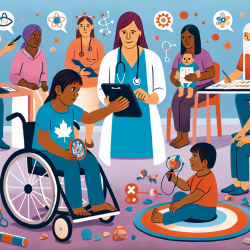In the realm of education and child development, the impact of childhood experiences on lifelong health is a topic of growing interest. Recent research highlights the significant role that Positive Childhood Experiences (PCEs) play in shaping adult health outcomes. This blog post delves into the findings of a nationally representative study that examines specific domains of PCEs and their association with improved adult health. By understanding these connections, educators and practitioners can enhance their skills and create environments that foster positive experiences for children.
The Power of Positive Childhood Experiences
The study titled "Specific domains of positive childhood experiences (PCEs) associated with improved adult health: A nationally representative study" explores five key domains of PCEs:
- Peer Support and Healthy School Climate: This domain emphasizes the importance of supportive peer relationships and a positive school environment. Children who feel comfortable with friends and happy at school are more likely to experience better mental health in adulthood.
- Neighborhood Safety: A safe neighborhood during childhood is linked to improved well-being and mental health in adulthood. Feeling secure in one's environment can reduce stress and promote a sense of stability.
- Neighborhood Support: The presence of a supportive community can enhance a child's sense of belonging and safety, contributing to better health outcomes later in life.
- Nurturing Maternal Relationship: A nurturing relationship with maternal figures is crucial for emotional development and resilience against adverse experiences.
- Nurturing Paternal Relationship: Similar to maternal relationships, paternal support plays a vital role in fostering emotional well-being and resilience.
Implications for Educators
The findings from this study provide valuable insights for educators seeking to improve their skills and contribute positively to children's development. Here are some practical ways educators can implement these insights:
- Create a Supportive School Climate: Encourage open communication, inclusivity, and anti-bullying policies. Foster an environment where students feel safe and valued by both peers and teachers.
- Promote Safe Neighborhoods: Collaborate with local communities to ensure safe spaces for children. Engage in initiatives that enhance neighborhood safety, such as community watch programs or after-school activities.
- Encourage Parental Involvement: Facilitate opportunities for parents to engage in their children's education. Host workshops or events that strengthen parent-child relationships and provide support resources.
- Cultivate Peer Support Networks: Implement programs that encourage peer mentoring and support groups. These networks can help children build strong friendships and develop social skills.
The Role of Further Research
This study opens the door for further exploration into the mechanisms through which PCEs influence adult health. Researchers are encouraged to delve deeper into understanding how specific interventions can amplify the protective effects of PCEs. Additionally, exploring the interplay between PCEs and Adverse Childhood Experiences (ACEs) can provide a more comprehensive understanding of how childhood environments shape lifelong health trajectories.
Conclusion
The research underscores the profound impact that positive childhood experiences have on adult health outcomes. By fostering supportive school climates, safe neighborhoods, and nurturing relationships, educators can play a pivotal role in shaping healthier futures for children. As we continue to explore the nuances of PCEs, it is essential to implement evidence-based practices that promote well-being from childhood into adulthood.
To read the original research paper, please follow this link: Specific domains of positive childhood experiences (PCEs) associated with improved adult health: A nationally representative study.










